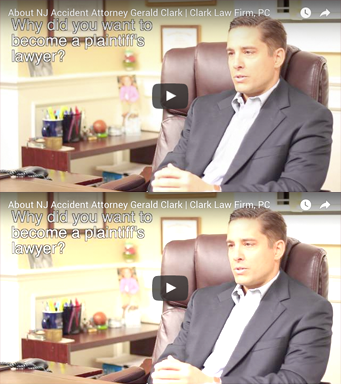Your Retirement Funds Could Be Getting Ripped Off and You Don’t Even Know About It!
We can help you recover depleted retirement funds.Many retirement funds are being needlessly depleted by excessive and illegal fees, kickback schemes, churning and, sometimes, just plain old negligent conduct. And often the retiree doesn’t even know about it.
The Clark Law Firm, PC is investigating potential litigation flowing from the fiduciary duties of prudence and loyalty imposed by the Federal ERISA law. 29 U.S.C. § 1104. Under these broad and demanding duties, a fiduciary must: (1) carry out its duties prudently; (2) act solely in the interest of plan participants and with the exclusive purpose of providing benefits to them; and (3) follow plan documents (unless inconsistent with ERISA).
Perhaps the most common type of litigation in this area involves allegations of excessive fees. Plan participants allege that they paid unreasonably excessive administrative or investment management fees, which impaired plan assets. Fiduciaries are required to maintain reasonable fees.
Another common, and somewhat related, type involves revenue sharing / kickbacks. This occurs when plan sponsors / administrators select investment options to intentionally steer fees to third-party service provides in order to benefit the corporate relationship. (E.g., the plan sponsor will hire an entity to provide record keeping for the ERISA plan, and the plan sponsor will get a discount from the entity for separate, non-plan-related services provided.)
A small change in fees and percentages may not seem like much, but over time, employers who illegally charge excessive fees are greatly depleting their employees’ retirement accounts. For example, say an employee contributes to a 401(k) and has 35 years until retirement. If that balance is $25,000 an average return on that account is 7% over 35 years and fees and expenses are 0.5%. With those fees and expenses, the employee’s account balance would be $227,000 at retirement even if no further contributions were made to the account. If fees and expenses are 1.5% however, his account balance will only grow to $163,000 by retirement. The 1% difference in fees and expenses would reduce the employee’s account balance by 28%. Employers owe their employees a fiduciary duty under the law to fairly and accurately manage retirement funds.
Other types of litigation involve fiduciaries selecting imprudently risky investment options and failing to conduct its due diligence when making investing and administrative decisions.
Spano v. Boeing is a good example of what this type of litigation entails. That case involved allegations of excessive fees, improper kickbacks, and failure to monitor investments and remove imprudently risky options. Plaintiffs were certified as a class and survived summary judgment before settling for $57 million. A second case is Beesley v. International Paper Co. The complaint included allegations that International Paper maintained its own publicly traded stock as an investment option, paid excessive fees for recording keeping and investment management, fraudulently reported performance histories for the plans’ funds, and improperly retained float income. This ended in a $30 million settlement. A third case is Abbott v. Lockheed Martin, another cases involving excessive fees and imprudent investment options. This ended in a $62 million settlement.
We are exploring instances of serious mismanagement of retirement accounts and defined contribution plans which may have resulted in significant losses by the employees of several large companies.
These companies include:
- A prominent aluminum manufacturing company;
- A brand name U.S. based food company in Minnesota;
- A midwestern energy company serving several states, based in Iowa;
- A German Multi-National research and development center;
- A popular national discount retailer;
- A leading provider of office furniture products based out of Iowa;
- A Colorado based financial services company;
- A large document management and copy machine company;
- A large grocery chain from Minnesota;
- Marmon Holdings (a Berkshire Hathaway company)
- A Minnesota health care services group.
If you are a retiree and/or current participant in any of the companies we are investigating, we would be happy to look into your situation. The suspected irregularities could have a significant negative impact the value of your retirement assets.
To conduct such a review, we would need to review any information you have received about your retirement fund. This includes annual statements, Section 404(a)(5) participant-level disclosures and other materials that provided information on investment options, fees and expense ratios. The information may have been distributed by either your employer or the plan administrator or other entity. Statements and disclosures from multiple years would be ideal.
If you are a retiree and you think your account may have been affected, contact us today to see if your company is on the list and for more information.
Contact us at info@clarklawnj.com, or call us at 877-841-8855. There is no obligation.

